Pumping Services
(Cochise County Only)
Currently only available in Cochise County, Stamback provides a variety of professional grease, septic and sump pumping services, drain or sewer cleaning, and septic inspection services for homes, businesses, bars, restaurants, construction sites, and commercial properties.
We also specialize in septic certification and septic installation to ensure your business adheres to city, county and state regulations so get your septic certification professionally handled by Tucson’s septic experts.
Licensed and insured for your peace of mind and safety, we also offer 24-hour emergency response, worry-free scheduling, record keeping, and reliable sewer and drain services to get the job done discretely and expertly, with the least amount of interruption to your business or intrusion in your home.
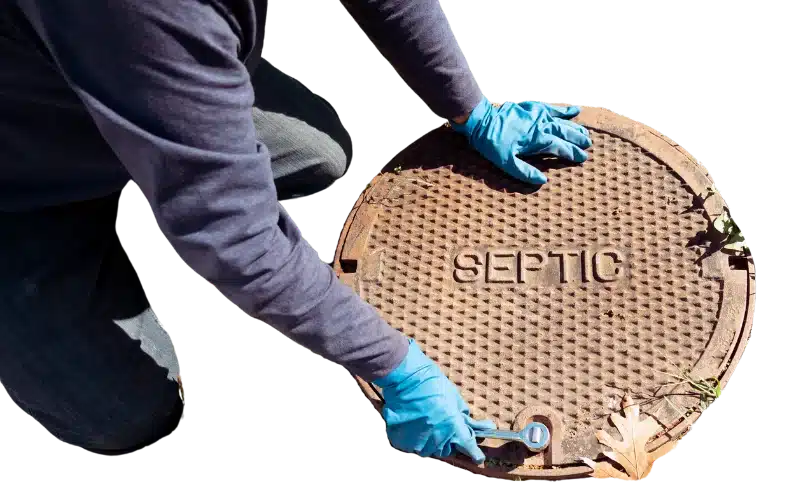
Stamback Services prides itself on providing professional and reliable septic installation services tailored to meet the specific needs of our clients. With years of experience and expertise in the field, our skilled technicians are equipped to handle all aspects of septic system installation, from initial site assessment and design to excavation, installation, and final inspection. ROC #291297

We recommend scheduling a septic inspection at least 2 weeks before your closing date to ensure proper septic certification. Stamback offers a streamlined and professional septic certification process to ensure compliance and peace of mind for homeowners, businesses, and property managers. Our comprehensive certification process involves a thorough inspection of the septic system by our qualified technicians, who assess the system’s components, functionality, and compliance with local regulations and standards. ROC #291297
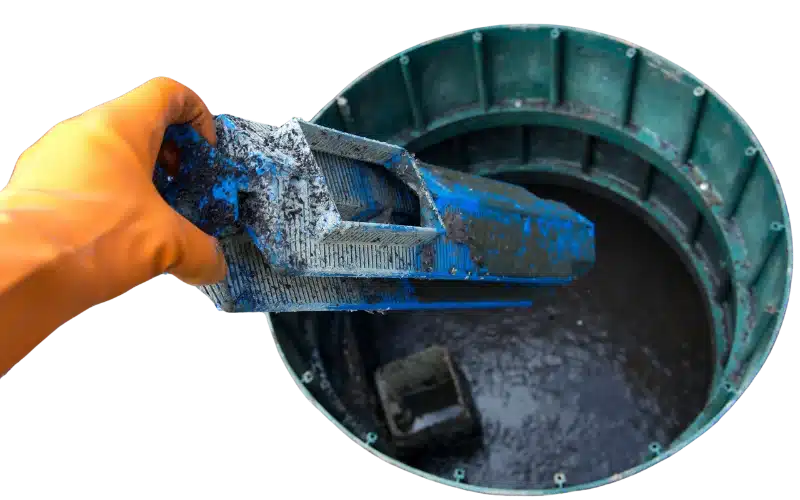
With a team of highly skilled technicians and years of experience in the field, we are equipped to handle a wide range of septic system issues promptly and effectively. Whether it’s a minor repair or a major overhaul, we approach each project with attention to detail and a commitment to quality craftsmanship.
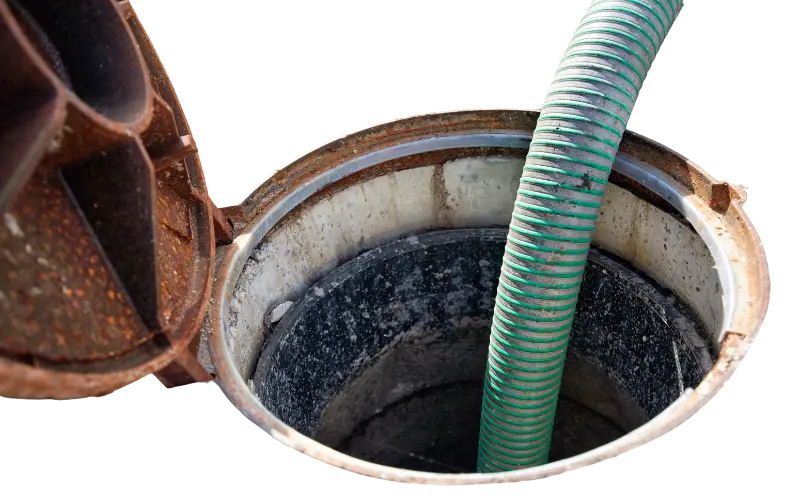
Stamback Services is your premier choice for reliable and efficient septic pumping services in Cochise County, Arizona. With decades of experience in septic pumping and our licensed team of experts, we ensure the proper maintenance and functionality of your septic system while adhering to local regulations, safeguarding both your property and the environment.
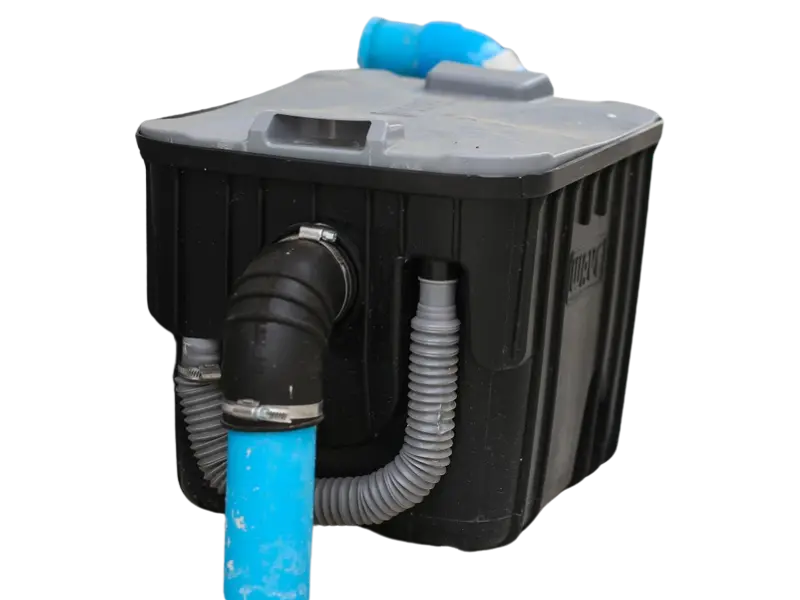
With decades of grease pumping experience and a fleet of large trucks for all types of businesses, we can help any-sized restaurant, commercial kitchen, bar, bakery or beyond to clean, maintain, or repair their grease traps in order to prevent drain blockages and help ensure your business can operate at the highest level – safely, reliably and efficiently.

We also specialize in car wash sump pumping across Cochise County.
Businesses like car washes and truck garages use trenches or pits to collect the debris that falls from vehicles. It is important to maintain them to ensure a smooth running system that does its job right.
Utilizing state-of-the-art technology, special mixing equipment, along with our powerful vacuum and our large trucks, Stamback Services can:
- Completely power wash drain lines to thoroughly clean the area
- Pump out the waste in your catch basin
- Remove all dirt, debris, mud and sand
- Clean your oil-water separators
- Follow all guidelines for disposal of waste
- Do it all on a schedule that works best for you and your business
Frequently Asked Questions
The frequency of septic tank pumping depends on several factors, including the size of your tank, the number of occupants in your household, and your usage habits. As a general guideline, it’s recommended to pump your septic tank every 3 to 5 years. However, households with larger tanks or fewer occupants may be able to extend the pumping interval, while smaller tanks or households with more occupants may require more frequent pumping.
Regular pumping helps prevent solids from accumulating in the tank and clogging the drain field, which can lead to costly repairs and potential health hazards. It’s also essential to schedule an inspection by a qualified professional to assess the condition of your tank and determine the appropriate pumping frequency based on your specific circumstances. Ultimately, following a regular maintenance schedule and heeding the advice of septic system professionals can help ensure the longevity and proper functioning of your septic system.
Several signs indicate that your septic tank may need pumping. It’s crucial to pay attention to these indicators to prevent potential issues and maintain the proper functioning of your septic system. Some common signs that your septic tank needs pumping include:
- Slow Drains: If you notice slow drainage in sinks, showers, or toilets throughout your home, it could indicate that your septic tank is full and needs pumping.
- Odors: Foul odors emanating from drains, toilets, or the area around the septic tank can indicate a buildup of sewage and the need for pumping.
- Sewage Backup: Backup of sewage into sinks, showers, or toilets is a clear sign that your septic tank is full and needs immediate pumping to prevent further damage and health hazards.
- Standing Water or Soggy Ground: Pooling water or soggy ground around the area of your septic tank or drain field may indicate a problem with your septic system, including a full tank that needs pumping.
- Lush Grass or Vegetation: Unusually lush and green grass or vegetation around the drain field area may indicate a leak or overflow from the septic tank, signaling the need for pumping and repairs.
- Gurgling Sounds: Gurgling sounds coming from drains or toilets when they’re flushed or emptied can indicate a full septic tank and potential blockages in the system.
If you notice any of these signs, it’s essential to contact a qualified septic system professional promptly to assess the situation and determine if pumping is necessary. Ignoring these warning signs can lead to more significant issues and costly repairs down the line. Regular maintenance and timely pumping are essential for the proper functioning and longevity of your septic system.
Several common signs indicate potential septic system problems that require attention from a professional. It’s crucial to recognize these signs early to prevent further damage and ensure the proper functioning of your septic system. Some common signs of septic system problems include:
- Foul Odors: Persistent foul odors around the septic tank, drain field, or inside the house can indicate a problem with the system, such as a leak, overflow, or blockage.
- Slow Drains: Slow drainage in sinks, showers, or toilets throughout the house may indicate a clog or backup in the plumbing system, potentially caused by a septic system issue.
- Sewage Backup: Backup of sewage into sinks, showers, or toilets is a clear sign of a septic system problem, such as a full tank, clogged pipes, or a failing drain field.
- Pooling Water: Pooling water or standing water around the area of the septic tank or drain field can indicate a leak, overflow, or drainage problem with the septic system.
- Lush Vegetation: Unusually lush and green grass or vegetation around the drain field area may indicate a leak or overflow from the septic tank, signaling a problem with the system.
- Soggy Ground: Soggy or waterlogged ground around the septic tank or drain field area may indicate a leak or overflow from the septic system, requiring immediate attention.
- Gurgling Sounds: Gurgling sounds coming from drains or toilets when they’re flushed or emptied can indicate a blockage or backup in the plumbing system, potentially caused by a septic system problem.
- High Levels of Nitrates in Well Water: Elevated levels of nitrates in well water can indicate septic system contamination, posing health risks to occupants and requiring investigation and remediation.
If you notice any of these signs, it’s essential to contact a qualified septic system professional promptly to assess the situation and address any potential problems. Ignoring septic system issues can lead to more significant problems and costly repairs in the future. Regular maintenance and timely repairs are crucial for the proper functioning and longevity of your septic system.
A septic certification is a document issued by a licensed septic system professional or inspector that verifies the proper functioning and compliance of a septic system with local regulations and standards. It typically involves an inspection of the entire septic system, including the tank, distribution lines, drain field, and any associated components, to ensure that they are in good condition and functioning as intended.
A septic certification is often required in the following situations:
- Real Estate Transactions: In many jurisdictions, a septic certification is required as part of the home sale process. Sellers may be required to provide a septic certification to potential buyers to demonstrate that the septic system is in good working order and complies with local regulations.
- New Construction: Before issuing a certificate of occupancy for a newly constructed home or building, local authorities may require a septic certification to ensure that the septic system has been properly installed and meets all applicable regulations and standards.
- Property Transfers: In some cases, a septic certification may be required when transferring ownership of a property, such as during estate settlements or property transfers between family members.
- Renovations or Additions: When making significant renovations or additions to a property, local authorities may require a septic certification to ensure that the existing septic system can accommodate the increased wastewater load.
It’s essential to check with your local health department or building authority to determine if a septic certification is required in your area and under what circumstances. Obtaining a septic certification from a qualified professional can help ensure compliance with local regulations, protect public health and safety, and facilitate smooth real estate transactions.
The time it takes to get a septic system certified varies based on factors such as system complexity, local regulations, and repair needs. Typically, the process involves an initial inspection, potential repairs or upgrades, a follow-up inspection, and submission of documentation to regulatory authorities. This process can take anywhere from a few weeks to several months, depending on the extent of repairs and regulatory requirements. Starting the certification process early is crucial to avoid delays in property transactions and ensure compliance with local regulations.
The duration for septic system installation varies based on factors like system complexity, site conditions, permits, and availability of resources. Typically, installation includes site evaluation, design, permitting, excavation, system installation, inspection, testing, and final approval. This process can range from days to weeks or even months. Working with a qualified professional, planning early, and adhering to local regulations can streamline the installation process.
When installing a septic system, it’s crucial to be aware of permits and regulations, which vary by location. Typically, you’ll need permits for septic system installation, site evaluation, and possibly building and environmental permits. Zoning regulations and health department guidelines also dictate installation parameters. Non-compliance can lead to fines or project delays. Working with a qualified professional ensures adherence to regulations and successful installation.
Grease pumping is vital for commercial kitchens to prevent drain clogs, maintain plumbing systems, comply with regulations, protect the environment, and prevent odors and pest infestations. It involves removing built-up grease from grease traps and interceptors to ensure smooth drainage, prevent costly repairs, and comply with environmental standards. Regular grease pumping helps maintain a clean, safe, and efficient kitchen environment.
The frequency of grease trap pumping depends on various factors, including the size of the grease trap, the volume of grease generated, and local regulations. However, as a general guideline, grease traps should typically be pumped every 1 to 3 months in commercial kitchens.
Here’s a breakdown:
- Heavy Usage: Kitchens with high-volume cooking and heavy grease production, such as large restaurants or food processing facilities, may require more frequent pumping, typically every 4 to 6 weeks.
- Moderate Usage: Restaurants with moderate grease production may opt for pumping every 2 to 3 months to maintain optimal trap efficiency and prevent clogs.
- Light Usage: Facilities with minimal grease generation, such as small cafes or coffee shops, may extend the pumping interval to every 3 to 6 months, depending on usage and local regulations.
It’s essential to consult with a qualified grease trap service provider or local regulatory authorities to determine the appropriate pumping frequency for your specific establishment. Regular maintenance and pumping of grease traps are crucial to prevent clogs, maintain efficient drainage, comply with regulations, and ensure a clean and safe kitchen environment.
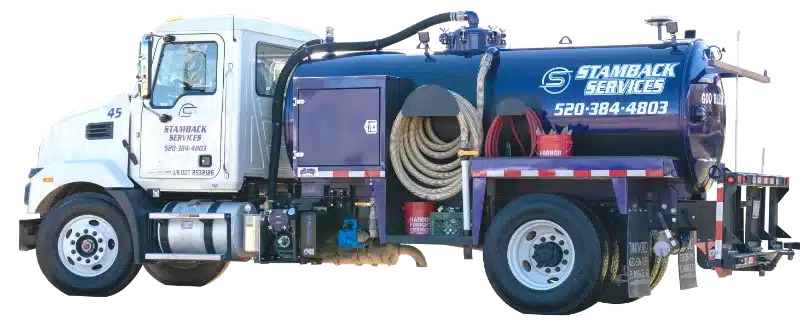
Get A Quote
Request a custom quote for any of our sanitation services and someone from our team will contact you as soon as possible.

Request a custom quote for any of our sanitation services and someone from our team will contact you as soon as possible.
